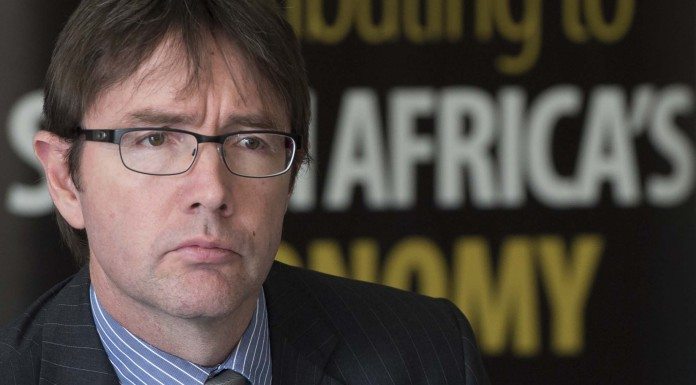
THE COVID-19 pandemic in South Africa may catalyse political will in such a way that long-standing reforms on regulations and services will be possible, said the Minerals Council South Africa in a press briefing today.
“I think it will serve as a catalyst,” said Roger Baxter, CEO of the Minerals Council in a briefing following the organisation’s annual general meeting.
The mining industry had met with President Cyril Ramaphosa as part of a delegation with Business Unity SA to discuss new ways of operating the economy once the worst of the pandemic was behind the country. “Either we make those conversations happen, or it will be more of the same which won’t be tenable,” said Baxter.
South Africa’s economy grew at 1.5% for 10 years under the Jacob Zuma, former South African president, compared to 4% for other emerging economies. In terms of greenfields exploration, South Africa attracted 0.1% of global spend. “It should be between 3% and 5% of global spend,” said Baxter.
Mxolisi Mgojo, CEO of Exxaro Resources who was also elected for another term as president of the council, said there had been “a realisation” that the economy had to be reformed. “The penny is dropping on quite a number of us.
“We are in a deep crisis. I’m not sure if people understand it. It has brought about a total realisation that only way to get through it is a joint effort about what that future is going to look like. It can’t be the way it has been done in the past because that got us into a mess in the first place.”
The council’s comments come days before the government eases restrictions on trade and movement which allows underground mines to operate at full tilt.
According to council estimates, roughly 10% of production, equal to R80bn in revenue, would be lost as result of actual and estimated COVID-19 related losses this year taking full year revenue to R650bn. There would also be a hit to salaries which would fall about R20bn to about R120bn for 2020, the council said.
Increases in instances of COVID-19 were only likely to increase on the mines in concert with rising infection levels nationally, said Baxter. Some 200,000 mineworkers had returned to work out of which there had been 321 positive cases of COVID-19 following 5,000 tests. “It shows the system is working,” said Baxter of positive cases on mines.
So far, only three mines have shut operations – Dwarsrivier owned by Assore and Marula and Mponeng owned by Impala Platinum and AngloGold Ashanti respectively, as a result of positive COVID-19 cases. Baxter said it would be up to the mining companies to decide how they would tackle future clusters of the infection.











